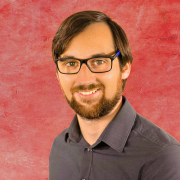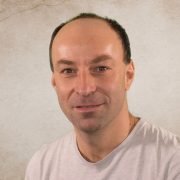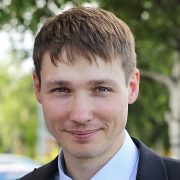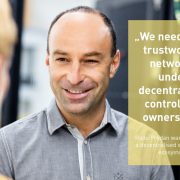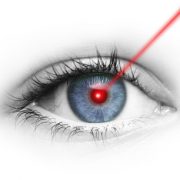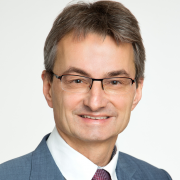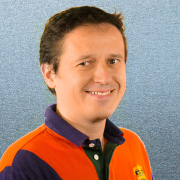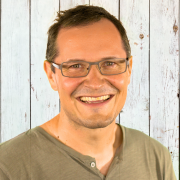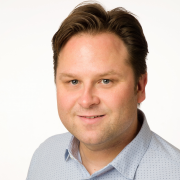The WiNTECH workshop explicitly deals with methodological and technical issues that have to be faced for defining, running, controlling and benchmarking experiments on wireless solutions. The workshop, that this year reach the 12th edition, has a consolidated tradition for bringing together an important number of researchers and industry players working in different aspects of experimental wireless communications. This year the workshop was held in conjunction with the International Conference on Mobile Computing and Networking (MobiCom) in New Delhi, India. Read more
From October 13-22, 2018 Prof. Radu Prodan visited Chandigarh University and Lovely Professional University in India for interaction with research scholars and discussions about the common research projects.
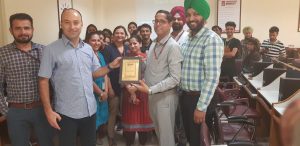
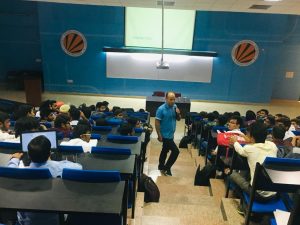
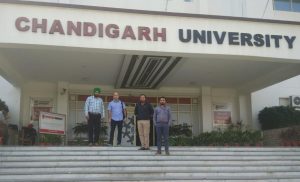
The 25th IEEE International Conference on Image Processing (ICIP; https://2018.ieeeicip.org/) will be held in Athens, Greece on October 7-10, 2018. ITEC researcher Anatoliy Zabrovskiy will present “A Practical Evaluation of Video Codecs for Large-Scale HTTP Adaptive Streaming Services” within the special session on “Video Coding at Scale”. The abstract is as follows: The number of bandwidth-hungry applications and services is constantly growing. HTTP adaptive streaming of audiovisual content accounts for the majority of today’s internet traffic. Although the internet bandwidth increases also constantly, audio-visual compression technology is inevitable and we are currently facing the challenge to be confronted with multiple video codecs. This paper provides a practical evaluation of state of the art video codecs (i. e., AV1, AVC/libx264, HEVC/libx265, VP9/Iibvpx-vp9) for large-scale HTTP adaptive streaming services. In anticipation of the results, AV1 shows promising performance compared to established video codecs. Additionally, AV1 is intended to be royalty free making it worthwhile to be considered for large scale HTTP adaptive streaming services. Read more
Please find the full AAU news blog article here.
The OVID research project (relevance detection in Ophthalmic surgery VIDeos), funded by the Austrian Science Fund (FWF), will start on October 1st, 2018 and run for three years. Together with research partners from Klinikum Klagenfurt, it will allow three PhD students (and an accompanying student assistant) to investigate challenging new research questions at the intersection of computer science and ophthalmic surgery. In particular, automatic classification and prediction of relevant content in video recordings from ophthalmic surgeries (e.g., operation phases, surgical actions, irregular events and their cause) should be evaluated for the purpose of medical training and retrospective analysis of irregularities. The researchers want to address these goals by using methods from video analysis, video compression, and machine learning (including deep neural networks). An interview summarizing the research goals can be found here (in German): https://www.aau.at/blog/relevante-stellen-in-augenoperationsvideos-maschinell-erkennen/
Hermann Hellwagner actively participated in the “IKT-Konvent 2018” in Vienna on September 17, 2018. The event was to boost Austrian R&D, commercial, and educational activities toward the fully digital and connected world. As one of the panel members, Hellwagner contributed to the session “5G Applications” which discussed potential applications and benefits of future 5G networks, how to prototype and introduce 5G infrastructure and applications, and which cooperations among industry, academia, and government are required to perform 5G projects and become a frontrunner in the 5G area.

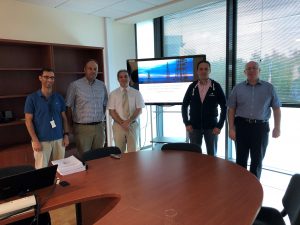 On September 18, 2018 Christian Timmerer participates on the PhD defense committee of Mario Cordina at the University of Malta. The title of Mario Cordina’s PhD is “Cross-Layer Design for Multi-View Video Plus Depth Transmission over LTE Networks in Crowd Event Scenarios”. Additionally, he delivered an invited talk about “HTTP Adaptive Streaming — State of the Art and Challenges Ahead” at the University of Malta, Department of Communications and Computer Engineering.
On September 18, 2018 Christian Timmerer participates on the PhD defense committee of Mario Cordina at the University of Malta. The title of Mario Cordina’s PhD is “Cross-Layer Design for Multi-View Video Plus Depth Transmission over LTE Networks in Crowd Event Scenarios”. Additionally, he delivered an invited talk about “HTTP Adaptive Streaming — State of the Art and Challenges Ahead” at the University of Malta, Department of Communications and Computer Engineering.
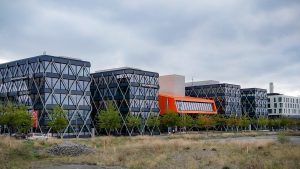 Mathias Lux was invited to give a talk at Simula Metropolitan, a joint research center of SIMULA research labs and Oslo Metropolitan University. Besides the talk he took the opportunity to work for two days with the people at SIMULA and talk about future and ongoing projects. Read more
Mathias Lux was invited to give a talk at Simula Metropolitan, a joint research center of SIMULA research labs and Oslo Metropolitan University. Besides the talk he took the opportunity to work for two days with the people at SIMULA and talk about future and ongoing projects. Read more
Klaus organized and participated in the “Special Session of Multimedia Data for Medicine and Health” within the CBMI 2018 at La Rochelle, France. CBMI aims at bringing together the various communities involved in all aspects of content-based multimedia indexing for retrieval, browsing, management, visualization and analytics.
Prof. Radu Prodan and Dr. Dragi Kimovski participate at “The 1st ACM SIGOPS Summer School on Advanced Topics in Systems” where with many proeminent speakers in the area of distributed systenms. They will also present a poster on their work on “A Nature-Inspired Adaptive Fog Architecture”.

